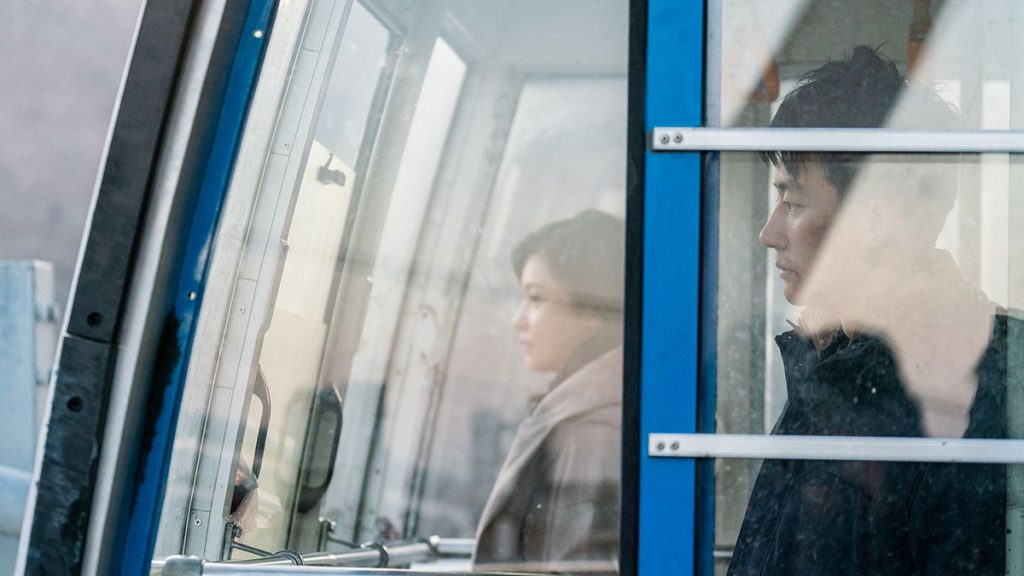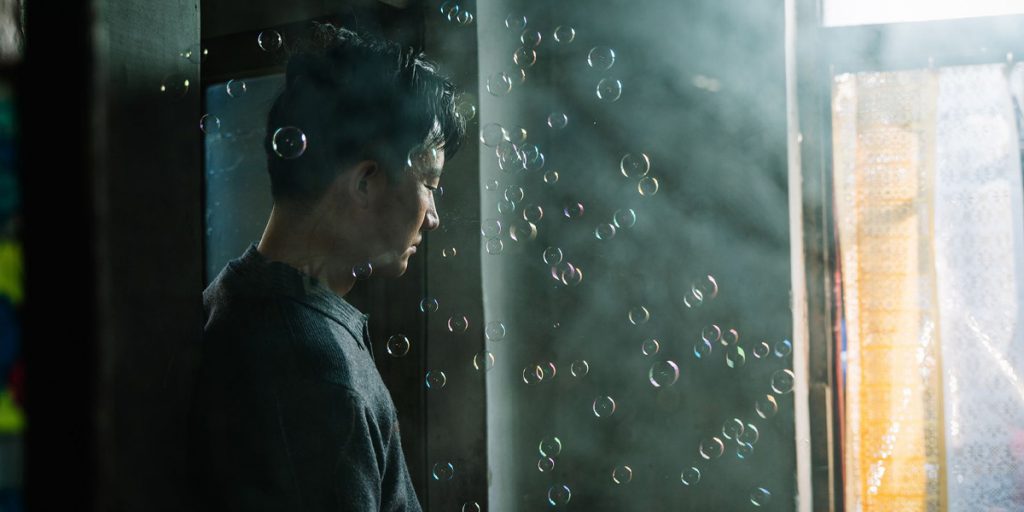While Wu Hai boasts some absorbing visuals and strong performances, the film feels too bleak for its own good, with irredeemable characters and no chance of hope.
This has not been a very good week for Yang Hua (Huang Xuan). His marriage is crumbling, he is drowning in debts, and his supposed friends are unwilling to give him back money he desperately needs to pay off the increasingly violent debt collectors. Unbeknownst to him, his wife, Miao Wei (Yang Zishan), is pregnant, and has been texting with an old flame. Yang desperately tries to keep all aspects of his life from falling apart, battling forces of predatory lending and classism as he is pushed closer and closer to his tipping point. Wu Hai boasts an exciting premise, though unfortunately succumbs to predictable story beats and a cast of irredeemable characters that makes the film difficult to engage with.
Wu Hai is the sophomore feature of director Zhou Ziyang, who directed the critically lauded 2017 film, Old Beast. Zhou proves himself to be adept when it comes to the crisp visuals throughout Wu Hai, with its abundance of the color blue and moments of visual poetry that feel akin to the films of Jia Zhangke. A shot of Yang staring out at a decrepit town feels like a direct reference to similar shots in Jia’s Still Life.
There are also interesting moments in Wu Hai where we cut to smartphone footage, which provides a refreshing aesthetic break from the cold hues of the rest of the film. These sparse moments are mostly used to convey intimacy, such as when we cut to a video of Yang proposing to his wife. This scene in particular is one of the most emotional parts of the film, due to its of-the-moment aesthetic choice and the natural performances of Huang Xuan and Yang Zishan.

However, while Wu Hai is accomplished visually, its screenwriting is lacking. Every single character is an awful, irredeemable person, which makes them difficult to connect with. This is not to say that every protagonist in a film has to be likable, but they should be engaging. The characters are not complicated, they’re just bad people who do bad things. While we see the increasingly tense situations that Yang deals with that lead to him taking drastic and vile actions, that kind of downward spiral does not fully hit because he already started out as a liar, a fool, and as an all-around bad person. And when the film asks you to feel bad for him, you can’t.
Wu Hai is a dark, hopeless film. It presents its characters as completely trapped by money and greed, with no chance of escape, no chance of survival. Everyone is doomed right from the start. And while this sort of bleak, oppressive atmosphere can and does work (just look at Hu Bo’s magnificent An Elephant Sitting Still), the characters are not nuanced enough for us to actually care what happens to them. Wu Hai and director Zhou show promise. The visuals are assured, and the social commentary is impactful. If Zhou makes a third feature, I would love to see the characters be more complicated, and not just immoral for the sake of grittiness.
Wu Hai premiered at the Tribeca Film Festival on Sunday, June 13, 2021.

